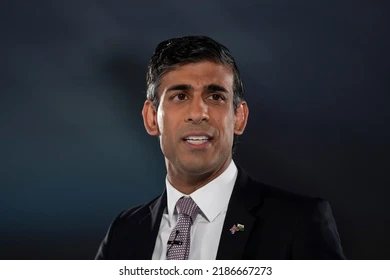Title: Understanding the Infosys Controversy: A Simple Explanation
Recently, there’s been talk about a company called Infosys, and it involves someone close to a big political figure in the UK, Rishi Sunak, the Chancellor’s wife, Akshata Murty. Let’s break down what’s happening in simple terms.

So, here’s the deal: Infosys snagged contracts worth millions from the government, like a £250 million one from NHS Shared Business Services and another potential £562.5 million from the Financial Conduct Authority. That’s a lot of taxpayer money going to one company.
Since 2015, Infosys has already pocketed at least £66 million from public contracts. And because they’re on the government’s approved supplier list, they could get even more money down the line.
Now, why is this a big deal? Well, it’s all about fairness and transparency. Some folks are worried that because Akshata Murty owns shares in Infosys, it might not be fair for Infosys to get all these contracts. It raises questions about whether the contracts were given out fairly or if someone got special treatment because of who they’re connected to.
The government says that ministers, including Rishi Sunak, aren’t the ones deciding which companies get these contracts. They’re supposed to be chosen based on fair evaluations, not because of who knows who.
When asked about it, the Financial Conduct Authority said they put their IT support contracts out for anyone to bid on publicly. NHS Shared Business Services also clarified that they haven’t specifically awarded any amount to Infosys or anyone else on their list.
But here’s the thing: even if there’s no direct involvement from politicians in choosing the companies, the connections still raise eyebrows. It’s like if your friend was in charge of giving out cookies, and they just happened to give most of them to their family members. It might technically be fair, but it doesn’t look great.
This controversy with Infosys isn’t happening in a vacuum. There’s also some drama about changes to the Electoral Commission, the folks who make sure elections are fair and square. Critics say the Conservative Party, the one Rishi Sunak is part of, is trying to change the rules to benefit themselves in the next election.
These changes to the Electoral Commission have raised concerns about whether the playing field will be level in future elections. It’s part of a bigger debate about fairness and democracy in the UK.
So, where does that leave us? Well, the Infosys situation is shining a light on the need for transparency and fairness in how the government hands out contracts. Even if everything is technically above board, appearances matter, especially when it comes to taxpayer money.
As for the changes to the Electoral Commission, it’s a reminder that democracy is fragile and needs to be protected. Everyone should play by the same rules, whether you’re a big-shot politician or just an ordinary citizen.
In the end, what happens with Infosys and the Electoral Commission will tell us a lot about the state of democracy and fairness in the UK. And it’s up to all of us to pay attention and hold our leaders accountable for their actions. After all, it’s our country, and we deserve to know that things are being done right.
